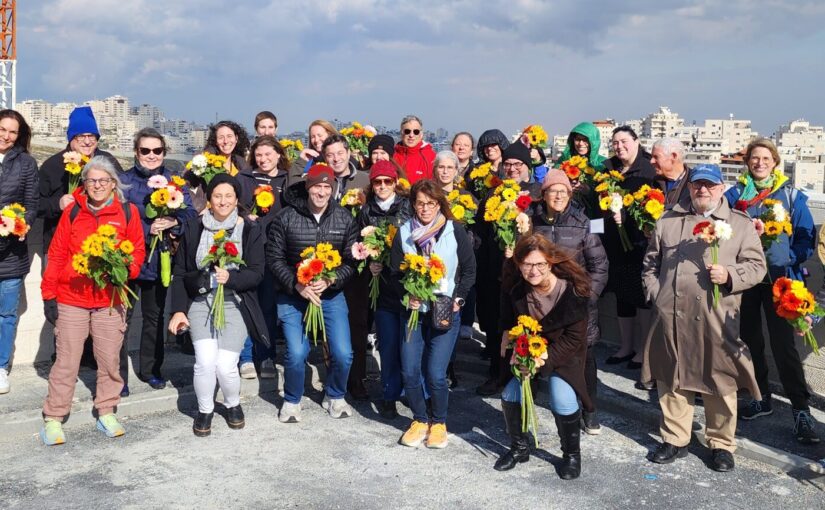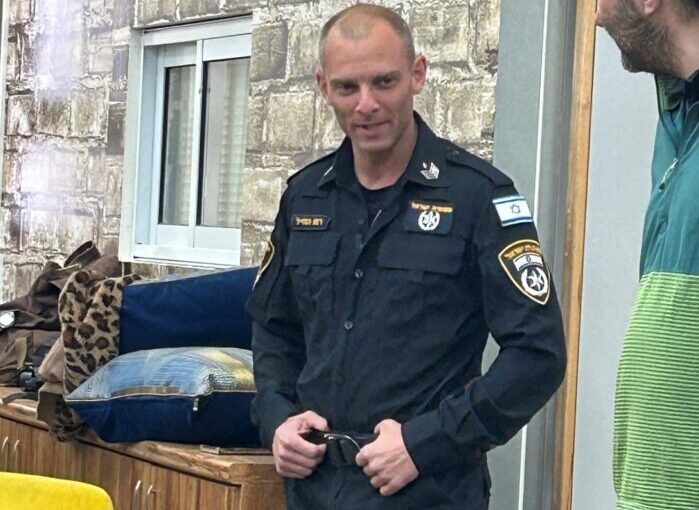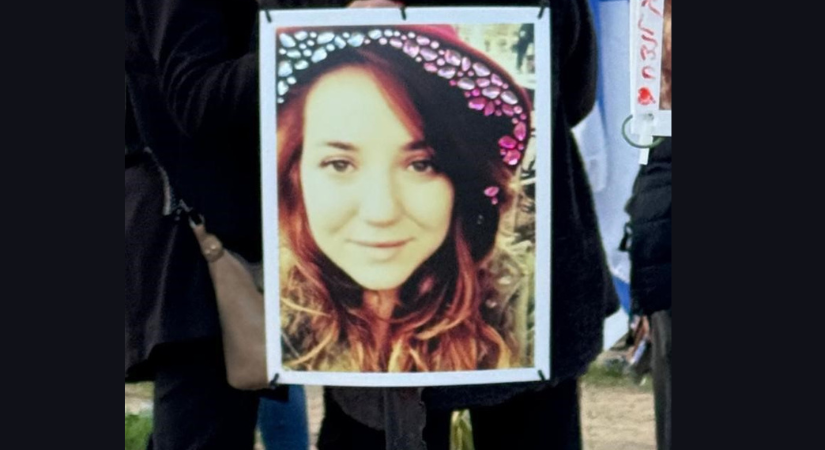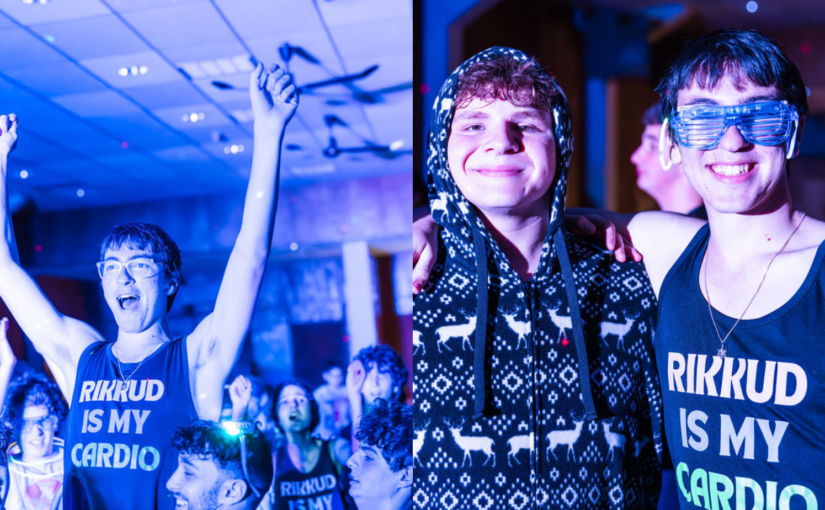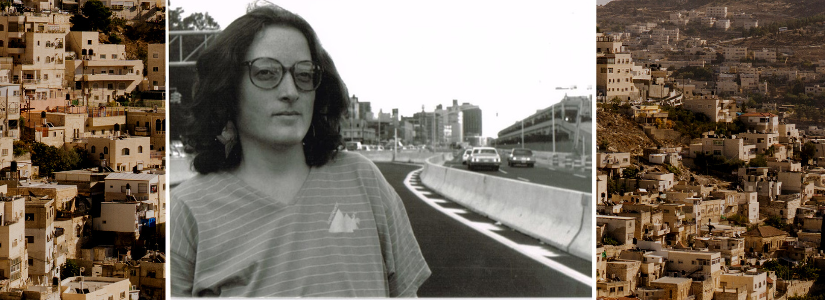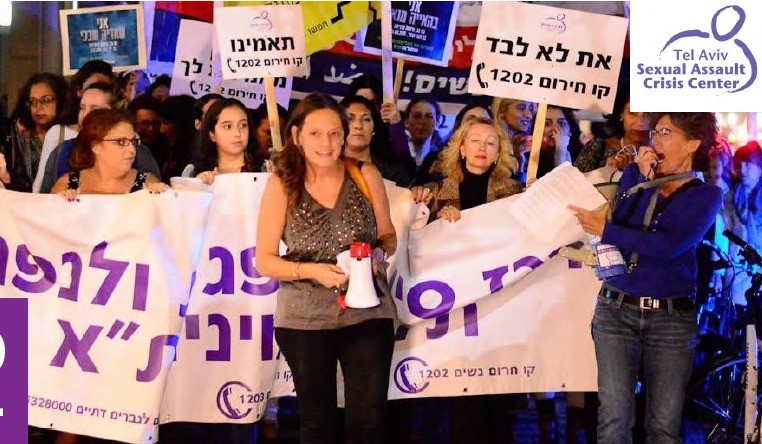An Insightful and Emotional Journey in Israel
By Rabbi Neal I Borovitz
Rabbi Emeritus Temple Avodat Shalom River Edge NJ
YJ Alum, Participant on the YJ Alumni Volunteer Trip in Israel, January 2024
In Mishna Peah we learn that among the Mitzvot that are “beyond measure” are “Gemilut Hasadim” Deeds of Kindness. Our liturgy defines this category of action to include the affirmative actions of visiting the sick and comforting the bereaved.
On my most recent trip to Israel as part of a Young Judaea Volunteer group, (January 26-February 4) I came to understand the true meaning of this teaching. I have been traveling regularly to Israel since 1968 when I spent my junior year of college in Israel. Over the last 56 years, I have been to Israel in both joyous times and difficult days; at celebrations of peace and in times of war. Never before, even in the depths of the Intifada has my awe and admiration for the Israeli public been greater, as I experienced first hand average Israelis standing up for each other and reaching out to help each other in the face of the greatest existential crisis in the history of Israel.
I specifically chose this Young Judaea trip because it was a week built around three days of volunteer service. I didn’t want to just bear witness to the tragedy of this war, but rather wanted to experience first hand the volunteer efforts that Israeli Civil society are undertaking
For two days we volunteered with “Achim Bneshek” Brothers in Arms, a volunteer group that arose a year ago as one of the leading organizers of the public protests against the Israeli government’s attack on the Court system. On October 7th, this protest group, led by retired and reserve military officers, pivoted from political action to social service. We volunteered at a vast distribution center that has been set up at the Tel Aviv Expo convention center, where supplies are gathered, sorted and distributed to the nearly 200,000 Israelis who have been displaced from their homes in both the North and South of Israel by this war. Packing boxes with food, hygiene supplies, clothing and toys requested by families, was truly a Mitzvah “ beyond measure”. Having met many multi generational families living in our hotel in Tel Aviv who have been displaced from both Sederet on the Gaza border and Kiryat Shmona on the Lebanon border who are recipients of packages such as we were preparing, made me feel both grateful and sad; Grateful that Israelis are saying through these action, Hineni, I am here to help my brethren, and sad that this is necessary.
Our third day of volunteering involved harvesting cucumbers on a Moshav. The majority of foreign workers who worked in agriculture have fled Israel following the Hamas invasion and massacre of October 7th. The overall labor shortage in Israel is made even worse by the massive number of Israelis who have been called up to active duty. The depth of gratitude of the farmer whose crops were helping to harvest was confirmation for many of us that our presence in Israel at this time was truly beyond measure.
While the focus of the Young Judaea trip was volunteering our time with NGO groups which have stepped into the void left by the government’s inability to meet the social service needs of hundreds of thousands of Israelis, I did have limited time to visit Israeli friends and to hear their personal stories about how October 7th and the War, now in its sixth month, have impacted them, their children and grandchildren and the families of every Israeli. The fear for the fate of the hostages, the concern for the soldiers on the front lines and their anger and frustration with both Hamas and the Israeli government was clear. So too was their determination to do their part to not only survive this war but to rebuild a better Israel.
These feelings were amplified in meeting with the families of hostages and those murdered on October 7th and listening to their anger and frustration with both the Israeli government’s inaction on October 7th and what they see as its non prioritizing of the fate of the remaining hostages. One of the most powerful experiences of the week was standing in the rain with parents at the grave of their 24 year old daughter Gili, who was murdered at the Nova music festival. Members of our group knew Gili, who had been a counselor at Young Judaea Camp Tel Yehudah this past summer.
Another poignant experience for me was Reading Amichai’s poem “The Diameter of the Bomb” and reciting memorial prayers on Mount Herzl at the fresh graves of soldiers who have fallen in Gaza. The constant flow of strangers, friends and family, along with uniformed soldiers coming by to cry while expressing gratitude and love was overwhelming.
From the military cemetery on Mount Herzl we proceeded to Hadassah Hospital where we fulfilled the Mitzvah of Bikur Holit , visiting the sick, including a police officer who was wounded in Sderot on October 7th by the Hamas terrorists who invaded Israel. We also met with a Hadassah nurse who had just returned from active duty in Gaza. In addition to describing for us the emotional experience of delivering a Palestinian baby under fire in Gaza, he described for us the experience of rescuing wounded soldiers from battle in an “ open Humvee.” This nurse’s description of both saving soldiers and delivering a Palestinian child, while under fire in Gaza, coupled with the story I heard from a friend that night regarding her son in law’s experience in riding along as the” protection “ on one of these rescue vehicles, I have come to a new level of realization of how ingrained in the psyche and souls of Israelis is the Talmudic teaching of the ultimate value of every single human life, Jew or Non Jew.
On Friday on our way to spend Shabbat at Kibbutz Ketura, we stopped in a Bedouin community, Rahat near a Beer Sheva. There we heard the story of an Israeli Bedouin police officer who personally saved some 200 people from the Nova festival by continually driving out small groups of festival attendees to safety in his car. The officer, speaking to us in Hebrew, was adamant in not seeing his actions as heroic. Rather for him, it was his responsibility as a policeman, as an Israeli and as a human being. His regret was his inability to help more people.
Shabbat at Kibbutz Ketura offered the thirty of us who had traveled together a spiritual opportunity for reflection and left me with true hope for the future of Israel.
Ketura is a Kibbutz founded 50 years ago by Young Judaeans who had made Aliyah. Originally a kibbutz whose economy was based upon agriculture, Ketura is today the solar energy “engine” of Israel. In addition to the solar power it produces and sells, in Israel and Jordan that powers multiple communities on both sides of the border, its Arafat Institute is a world class research institute where Israelis, Jordanians and Palestinians work and study together.
In informal discussions before and after Shabbat services and in and around the dining hall, I was awed by the facts that the members of this Kibbutz community remained firmly committed to BOTH the security of Israel and safety of all its citizens, Jews and Arabs alike, but also equally committed to pursuing, what I believe is the awesome task which, post October 7th has become an even greater imperative; a two state solution where Palestinians have the right and responsibility to live independently and at peace with Israel.
